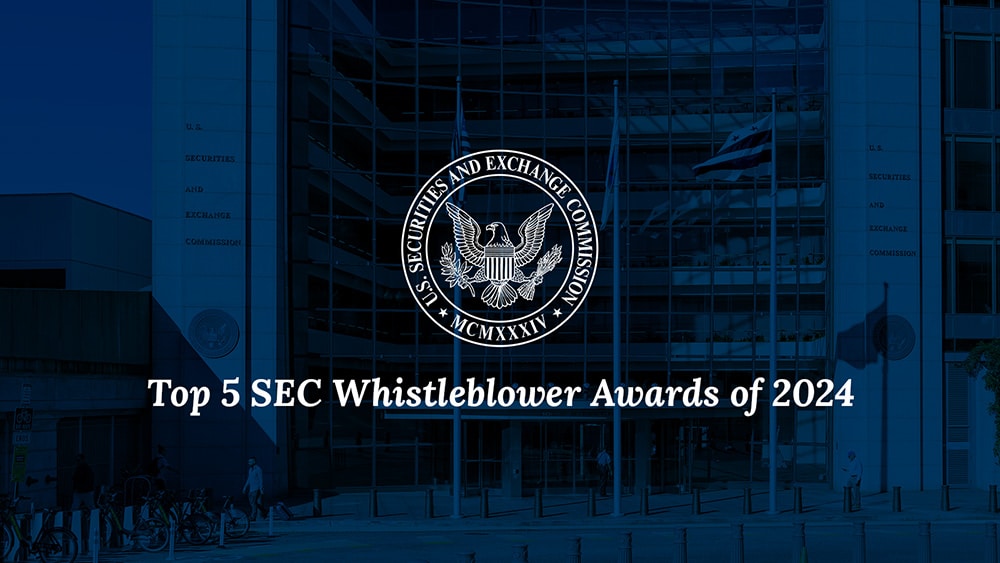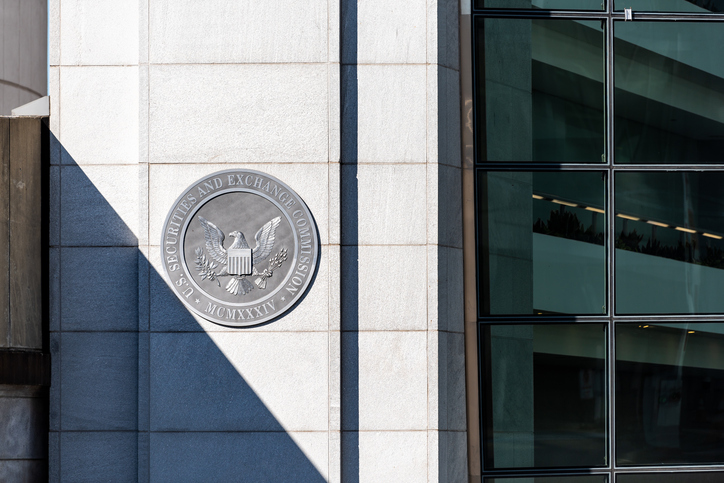Restrictive Employment Agreements: A Whistleblowers Guide
Although employment agreements are not mandatory, they are generally a good idea. They offer both parties protection in case things go wrong. However, they do not allow employers to break certain laws and regulations – and they are certainly not allowed to prevent an employee from engaging in a protected activity, such as whistleblowing.
May 15, 2025

This information is provided for educational purposes only by Kohn, Kohn & Colapinto and does not constitute legal advice. No attorney-client relationship is created by accessing this content. Laws and regulations may change, and this material may not reflect the most current legal developments. If you believe you have a whistleblower claim, consult a qualified attorney to discuss your specific circumstances.
An employee agreement is a legal contract between an employee and their employer, which provides an outline of their employment relationship.
This typically includes an official job title and responsibilities, salary and benefits, work hours and more. It may also contain clauses related to confidentiality, non-competition, intellectual property, and work-for hire.
This type of agreement protects both employees and employers if there is a misunderstanding, dispute, or other employment issue. In essence, an employment agreement provides a solid foundation for a successful and mutually beneficial employment relationship.
However, they do not allow a company to restrict employees from reporting securities or commodities law violations. Continue reading to learn more, and what your options are if you signed one.
Limitations on Employment Agreements
Employment agreements are great for defining the employer and employee relationship. However, employment agreements cannot restrict certain activities, such as reporting violations of a specific law or regulation, such as those falling under the Dodd-Frank Act and the SEC or CFTC’s purview. In other words, employment agreements cannot restrict employees from reporting illegal or unethical activities to authorities, as this is protected by law.
It is essential for employers, especially publicly traded companies, to ensure that their employment agreements are compliant with all applicable laws and regulations. Employees who think they’ve signed an illegally restrictive employment agreement should contact an attorney to determine their legal options – in some cases, these agreements may expose something much more at stake than what meets the eye.
If it’s a major fraud or violation, protection and massive awards may be available under the SEC Whistleblower Program or the CFTC Whistleblower Program.
Other Types of Restrictive Agreements
There are many types of restrictive agreements which prevent and threaten to punish whistleblowers for reporting their concerns to regulators. These come in many forms, but they all have the same purpose, to silence whistleblowers. Below are a few additional types:
- Restrictive severance agreement: a restrictive severance agreement is a legal document that an employee signs in exchange for a severance package. It often includes provisions that limit the employee’s future actions, such as non-compete clauses, non-solicitation clauses, confidentiality agreements, and non-disparagement clauses. Employers use these agreements to protect trade secrets, maintain customer relationships, and avoid negative publicity. These agreements can be illegally restrictive, in violation of the Dodd-Frank Act, if they interfere with employees or former employees providing information to the SEC or CFTC whistleblower programs. This also includes agreements where the employee or former employee agrees to not receive an award from whistleblower programs.
- Restrictive non-disparagement agreements: a type of restrictive covenant often found in severance packages, which prohibit the employee from making negative public statements about their former employer. Employers include non-disparagement clauses to protect their reputation and prevent harm to their business. These non-disparagement clauses have been found to violate the Dodd-Frank Act when they prevent an employee or former employee from providing information to the SEC or CFTC as whistleblowers.
- Restrictive settlement agreements: used to resolve disputes between parties, often involving employment relationships. These agreements typically include provisions that limit the employee’s future actions, such as non-compete clauses, non-solicitation clauses, confidentiality agreements, and non-disparagement clauses. In exchange for signing a restrictive settlement agreement, the employee often receives a severance package or other benefits. These agreements are illegally restrictive if they seek to prevent employees or former employees from providing their information to the SEC or CFTC Dodd-Frank Whistleblower Programs. This includes seeking to prevent recovery of Rewards from SEC and CFTC Whistleblower programs.
- Restrictive non-disclosure agreement: a legal contract that requires one or more parties to maintain the confidentiality of information disclosed to them. In the context of employment, NDAs are often used to protect an employer’s trade secrets, proprietary information, and other confidential data. Non-disclosure clauses have been found to violate the Dodd-Frank Act when they prevent an employee or former employee from providing information to the SEC or CFTC as whistleblowers.
If you’re considering signing what appears to be a restrictive agreement, it’s highly recommended to consult with an attorney to assess its legality. The Dodd-Frank Act specifically prohibits employers from taking adverse actions against employees who engage in protected activities, such as whistleblowing. This means that agreements cannot restricting employees from reporting illegal or unethical activity to authorities, such as the SEC and CFTC.
Consumer Financial Protection Bureau
The CFPB has also recently determined that their employee protection regulations apply to confidentiality agreements that seek to prevent employees from providing information to regulators. This provides employees with another remedy to protect themselves against restrictive confidentiality agreements.
Examples of Restrictive Agreements
Washington Post (July 13, 2024)
OpenAI illegally barred staff from airing safety risks, whistleblowers say
In a seven-page letter sent to the SEC commissioner and exclusively obtained by The Washington Post, whistleblowers asked the SEC to probe OpenAI’s allegedly restrictive nondisclosure agreements, which barred staff from airing safety risks.
According to whistleblowers, OpenAI issued its employees overly restrictive employment, severance, and non-disclosure agreements, which could have led to penalties who raise concerns about OpenAI to regulators, such as the SEC.
Stephen M. Kohn, of Kohn, Kohn and Colapinto, is one of the attorneys representing the OpenAI whistleblowers. He said the SEC has responded to the complaint but is unclear whether the SEC has launched an investigation.
Blowing the Whistle on Restrictive Employment Agreements
SEC Whistleblower Program
The SEC Whistleblower Program is a federal initiative designed to incentivize individuals to report illegal securities activity to the Securities and Exchange Commission (SEC).
Under this program, whistleblowers who provide original information that leads to a successful enforcement action by the SEC can receive a monetary award of between 10% and 30% of the penalties imposed by the SEC.
The program also offers protection for whistleblowers, including confidentiality and protection from retaliation by their employers. Additionally, the SEC allows for anonymous filing, enabling whistleblowers to report misconduct without revealing their identity.
Regarding restrictive employment agreements, the SEC Whistleblower Program provides significant protections. Whistleblowers can generally rely on the program’s protections to overcome restrictive covenants, such as non-compete or non-disclosure agreements, that may prevent them from reporting misconduct to the SEC.
If a whistleblower faces retaliation or other adverse employment actions due to their reporting, they may be eligible for additional remedies under the program.
CFTC Whistleblower Program
The CFTC Whistleblower Program is like the SEC program, offering monetary rewards to individuals who provide original information that leads to a successful enforcement action by the CFTC.
The CFTC program also provides protections for whistleblowers, including confidentiality and protection from retaliation. The award range for CFTC whistleblowers is typically between 10% and 30% of the penalties imposed by the CFTC.
Like the SEC program, the CFTC whistleblower program offers protection against restrictive employment agreements. Whistleblowers can generally rely on the program’s protections to overcome covenants that may prevent them from reporting misconduct to the CFTC.
Additionally, the CFTC program allows for anonymous filing, enabling whistleblowers to report misconduct without revealing their identity.
Have You Signed a Restrictive Employment Agreement?
If you’ve signed a restrictive employment agreement, get in touch with an SEC whistleblower attorney at our firm today. We can help you review the agreement, and under the Dodd-Frank Act, help you file a complaint against your employer with the Securities and Exchange Commission (SEC) or Commodities Futures Trading Commission (CFTC). Our team includes former SEC commissioner and acting chair Allison Herren Lee, and world-renowned attorney Stephen M. Kohn; both have been major contributors of the all powerful Dodd-Frank Act, which protects and rewards whistleblowers.
Our Firm’s Cases
Relevant FAQs
Latest News & Insights
December 3, 2024
November 22, 2024





